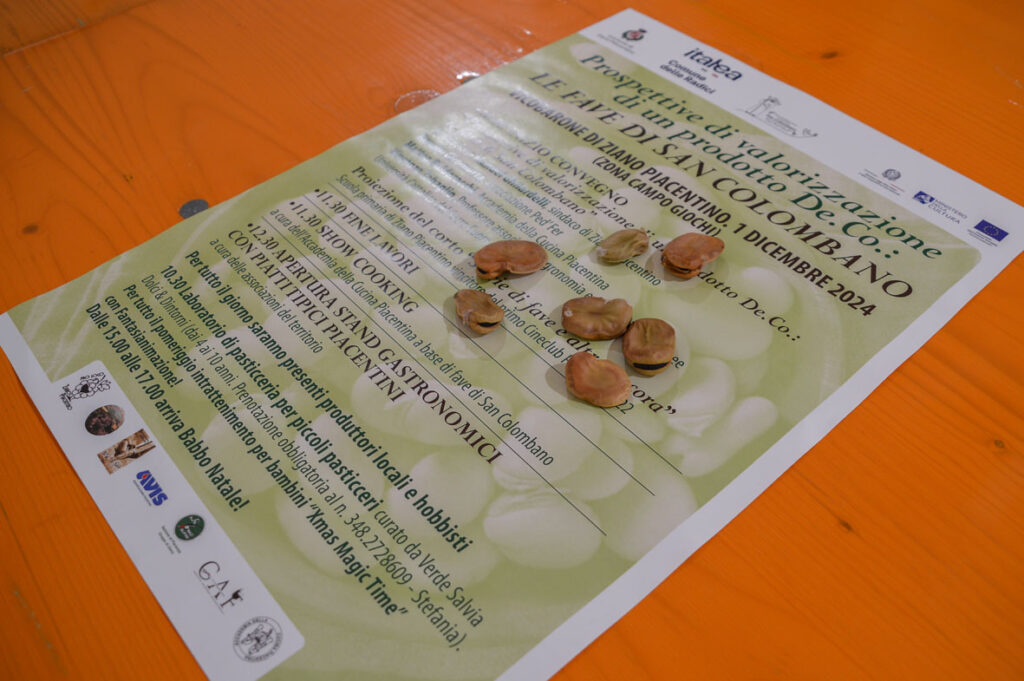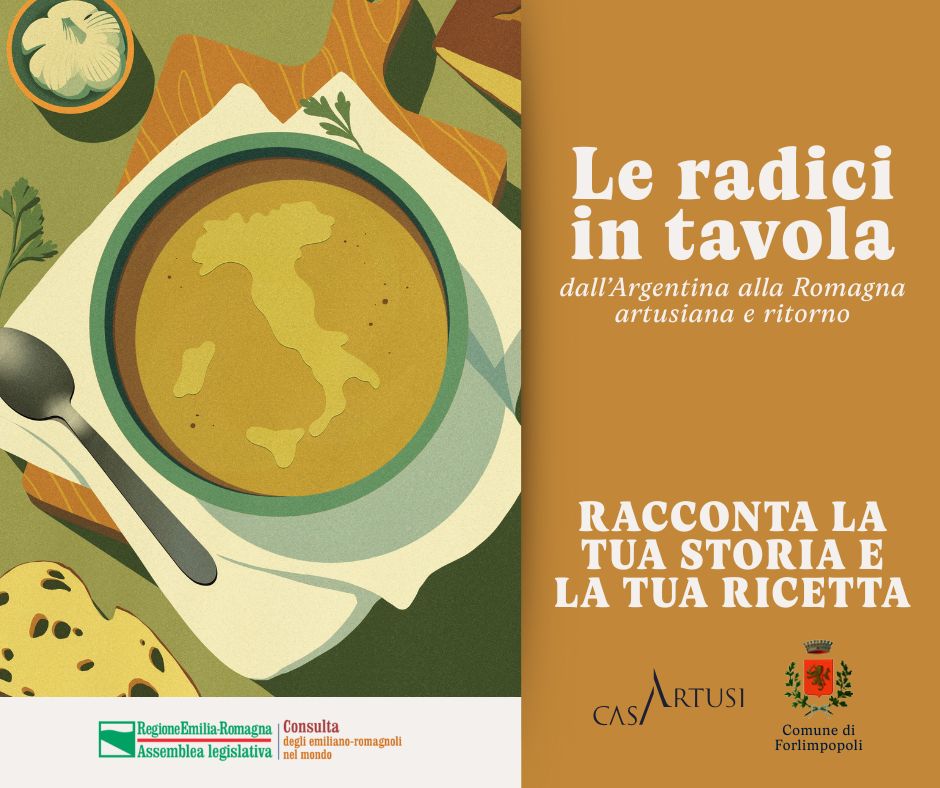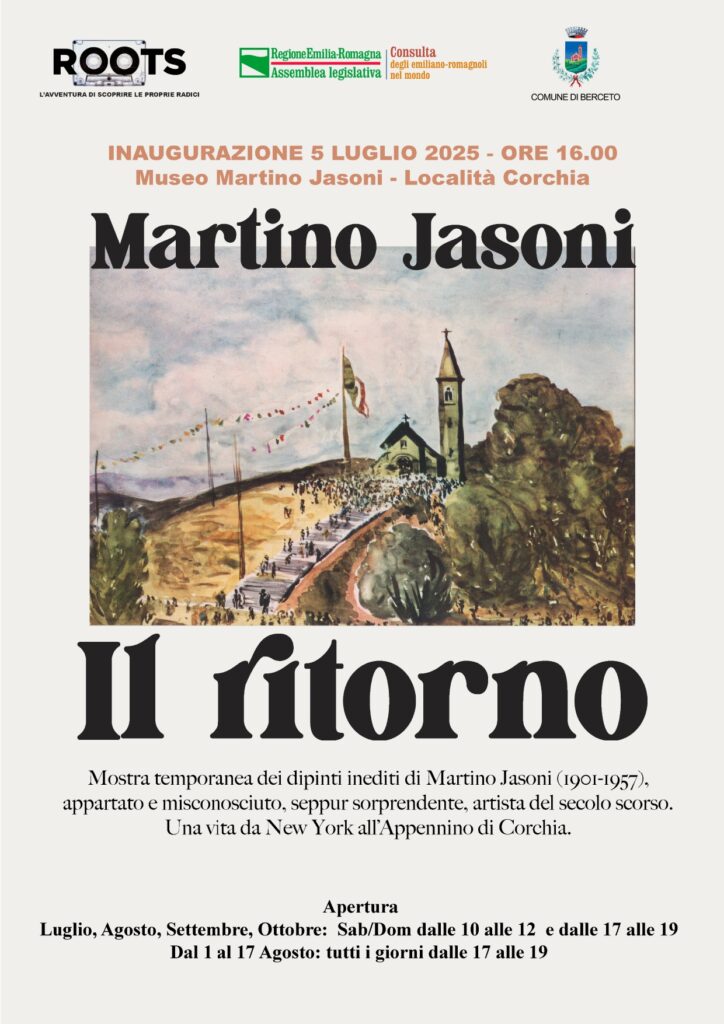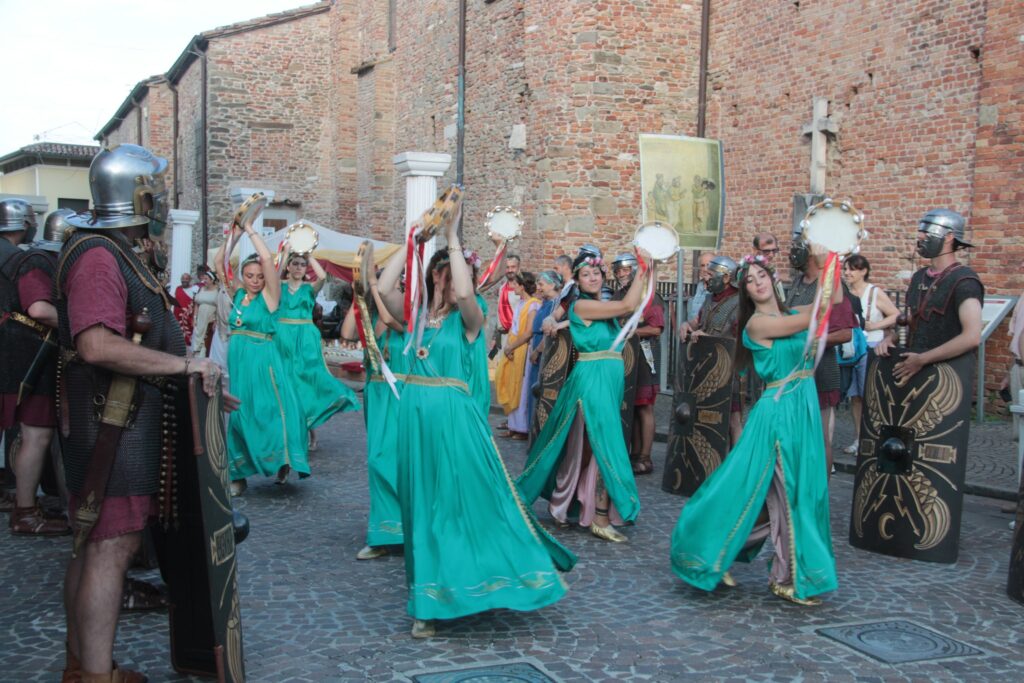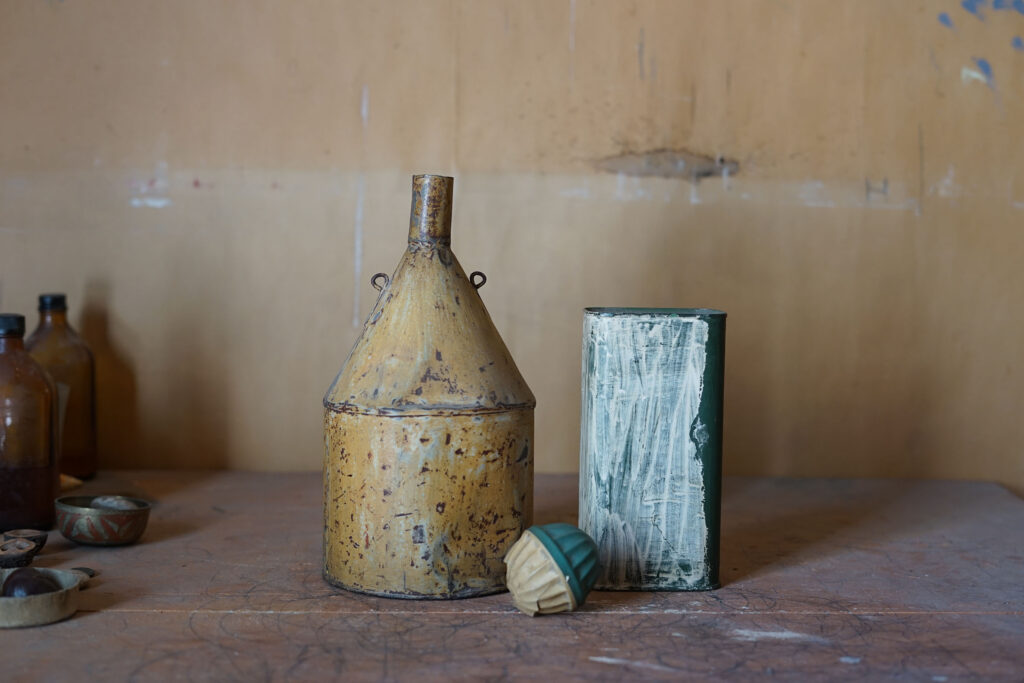The conference on the Broad Beans of San Colombano, held on December 1st, was a first step to promote this De.Co product. and relaunch its cultivation and food use,” said the mayor of Ziano Piacentino, Manuel Ghilardelli. The event took place in Vicobarone, as part of a program full of activities organized by local associations.
Among the speakers, Renato Girometta narrated the legend linked to the passage of San Colombano, which took place around 813 during a famine. The saint suggested sowing the beans, and miraculously the population found the field rich in harvest, saving themselves from hunger. This story is accompanied by a nursery rhyme in dialect and the field indicated by the saint is now named after him.
Matteo Balderacchi, from the Academy of Piacenza Cuisine, illustrated the use of broad beans in local recipe books and created a cooking show, preparing the traditional dish of broad beans and pork rinds, which was then served in food stands. He pointed out that the preparation of these dishes, which take time, could be entrusted to restaurateurs to preserve their tradition.
Professor Vincenzo Tabaglio analyzed the qualities of the beans and proposed the creation of a census of growers, encouraging individuals, farmhouses and restaurants to enhance them in their menus. He hoped that the conference would be only the first of a series of meetings aimed at relaunching this cultivation.
The mayor thanked all the participants, in particular the CAF of Vicobarone for their hospitality, and confirmed the administration’s commitment to seek funding to replant this variety and support further studies.
At the end of the event, the short film “Stories of broad beans and more,” made by the primary school of Ziano Piacentino and winner of the Cineclub Piacenza 2022 award, was screened.
The day also saw the participation of about thirty exhibitors, workshops for children, street artists and food stands with typical products. The initiative is part of the Roots Tourism project, funded by the Ministry of Foreign Affairs and the Ministry of Culture thanks to Next Generation EU funds.
